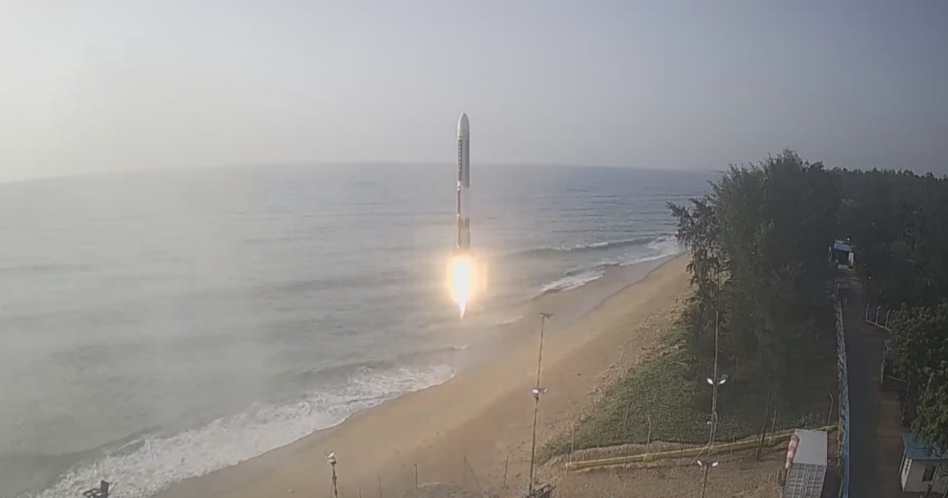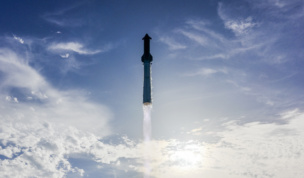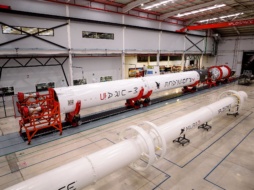Agnikul Cosmos, an Indian rocket startup, successfully launched its Agnibaan SOrTeD vehicle on a suborbital test flight mission Wednesday, marking another win for the Indian space sector that has already had a banner past 12 months.
“All the mission objectives of this controlled vertical ascent flight were met and performance was nominal,” the company wrote in a statement posted to X.
The demo mission featured a single-stage rocket using a 3D-printed semi-cryogenic Agnilet engine, an important milestone as the company inches toward its maiden orbital launch.
Agnikul Cosmos 101: Founded in late 2017, Agnikul is building an 18-meter, two-stage orbital rocket. The vehicle, powered by its LOX/kerosene-guzzling Agnilet engines, will be capable of ferrying 300 kg to LEO.
The company designed the launch system to be highly customizable, with access to high- and low-inclination orbits.
- Customers can choose how many first-stage engines they need (between four and seven) in a pay-for-what-you-launch model.
- The launch system is mobile, allowing the rocket to fly out of 10+ designated sites.
Printing press: Agnikul 3D-prints the engines as single-piece hardware, with engineers adding the fuel pipes, sensors, and valves after printing is complete. The company said that this low-human-intervention method allows it to pump out two finished engines every week.
“A remarkable feat which will make the entire nation proud,” India’s Prime Minister Narendra Modi wrote on X. “The successful launch of the Agnibaan rocket powered by the world’s first single-piece 3D printed semi-cryogenic engine is a momentous occasion for India’s space sector and a testament to the remarkable ingenuity of our Yuva Shakti,” which local press translated as “youth power.”
In October, the company raised a $26.7M Series B, bringing its total funding banked to $40M.
Spacefaring India: India is rapidly developing into a space nation: ISRO manages three launch vehicles, and a wave of young commercial startups is emerging.




